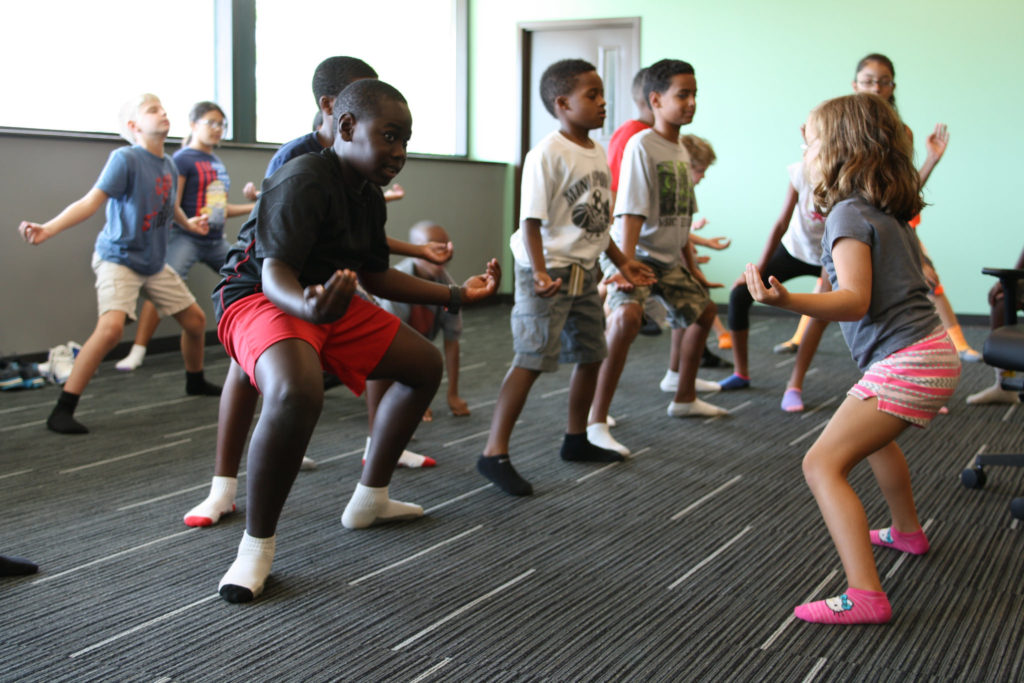A new study, published in the journal Psychology Research and Behavior Management, investigates the effect of yoga in schools on student’s quality of life. The results of the randomized control trial demonstrate a significant increase in emotional and psychosocial quality of life for the third graders sampled. This brief in-school intervention shows promising and accessible outcomes for stress management in elementary schools.
“Yoga and mindfulness curricula may provide children at risk of anxiety with a skill enabling them to improve their psychosocial and emotional quality of life,” lead researcher Bazzano and his team write. “These coping skills, when provided in the school environment, may assist students achieve optimum physical and mental health.”

Increased demands of students, and the emphasis on evaluation orientated learning, place growing demands on student’s performance. These stresses have been met by a push for increased Social and Emotional Learning (SEL) programs in schools, which emphasize stress reduction and psychosocial development.
“Community partnerships with local organizations that deliver services to students are one way that schools may extend their ability to provide SEL-related activities, and may decrease the burden on teachers and staff to provide additional learning activities outside the required curriculum,” the researchers add.
School-based yoga and mindfulness programs are a growing trend and have increased over the last decade. Literature shows promising effects of these programs in addressing mental health and reducing stress among students. Research also demonstrates decreased behavioral problems and increased academic performance through yoga interventions. However, these outcomes only address one aspect of the evaluation-oriented culture schools have come to value.
The current randomized controlled school-based study focuses on quality of life benefits, rather than achievement, for students and teachers following an in-school yoga and mindfulness program. Students included in the study were third graders who tested positively for symptoms of anxiety. Half of the students in the study received the yoga intervention while the control group received care as usual, which consisted of therapy and other common treatments.
The Pediatric Quality of Life Inventory (PedsQL), a well validated measure of quality of life for children ages 8-12, was given before the study, during, and following the intervention. The students that received the yoga intervention participated in an eight-week course taught by an experienced yoga instructor. In addition, the teacher received information and training about incorporating yoga into their classrooms.
Following the intervention period, the researchers found significant increases in emotional and psychosocial quality of life among students that received the yoga intervention as compared to those who received the control treatment. Bazzano and her team report, “The difference for emotional PedsQL achieved statistical significance, with an 18.27 unit increase in the intervention group from baseline compared to a 0.86 unit decrease in the control group from baseline.”
“The use of a previously studied yoga education curriculum allows the results of this study to be compared with others previously reported. Students’ quality of life was assessed using previously validated instruments designed for use in children. Finally, the data collected from teachers and staff will facilitate future research by helping ensure that it is tailored to address the concerns and suggestions of the educators.”
More research is needed to understand the range of effects yoga may have on the developing person. This study provides mounting evidence of school-based yoga to address not only achievement and mental health outcomes but to improve the way one experiences life. While the role yoga best serves in the school system is still under investigation, equipping elementary aged children with skills necessary to improve their quality life may be an important development to the education system.
****
Bazzano, A. N., Anderson, C. E., Hylton, C., & Gustat, J. (2018). Effect of mindfulness and yoga on quality of life for elementary school students and teachers: results of a randomized controlled school-based study. Psychology research and behavior management, 11, 81. (Link)















Public education has derailed because it is far too concerned about being a social policing force and creating the very problems it then seeks to “help” with (anxiety, bullying, etc). Quit labeling kids with DSM terms, feed them, let them play, let them create, protect them from bullies (both students and faculty) and quit with the high stakes testing. Then you can begin to look at solutions for problems that will be dramatically reduced.
Report comment